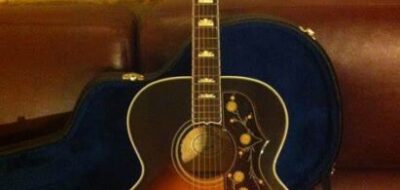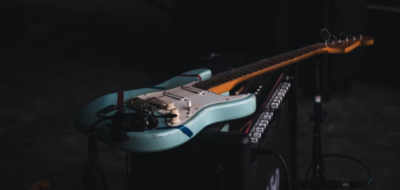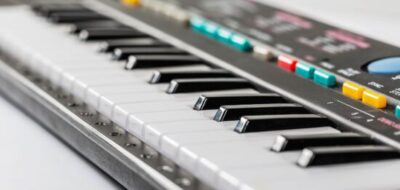Embarking on a musical journey is an exhilarating experience that beckons the promise of self-expression, creativity, and fulfillment. At the heart of this adventure lies a crucial choice – selecting the right musical instrument.
This choice serves as the cornerstone of your musical experience, shaping your journey in profound ways. This guide aims to provide a well-rounded approach to help you navigate through the process of choosing your perfect musical companion. The essence of music is profound, and the instrument you choose becomes an extension of your self-expression. Hence, making an informed, well-thought-out decision can significantly enhance your musical journey’s joy and satisfaction.
Understanding Your Musical Preferences:
Your musical tastes play a pivotal role in guiding your instrument selection. Are you enchanted by the melancholy resonance of a piano or the vibrant strum of a guitar? Identifying the genres of music that resonate with you can significantly narrow down your choices. Instruments carry unique tonal qualities that define different musical genres. Engaging with various genres, listening to the sounds of different instruments, and envisioning yourself playing them can provide valuable insights into making an informed decision.
Additionally, understanding the versatility of each instrument across various genres can also be a deciding factor. Some instruments offer a broad range of musical expression, making them suitable for various musical styles, which can be a significant advantage as you evolve musically. For those with a particular affinity for string sounds, exploring the best string instruments within your preferred genres might unveil the perfect musical companion for your journey.
Assessing Physical Comfort and Ergonomics:
The physical aspect of playing an instrument is a facet that often goes overlooked. Each instrument demands a different level of physical engagement. For instance, the elegant glide of a bow on strings in a violin contrasts with the percussive strike on drums. Assessing your physical comfort, hand size, and posture with potential instruments is paramount. It’s advisable to visit music stores, feel the instruments, and, if possible, attempt to play them. The ergonomics of an instrument can significantly impact your ability to learn and enjoy playing it. Furthermore, considering any existing physical conditions or limitations is crucial as it can influence your ability to play certain instruments comfortably.
Budget Considerations:
Musical instruments come with varying price tags, and it’s essential to consider your budget. While you might dream of strumming a high-end guitar, starting with a budget-friendly option can also serve you well as you learn the ropes. Besides the initial cost, consider the maintenance, necessary accessories, and lesson costs. A well-rounded budget plan can prevent unforeseen expenses and ensure a smooth musical journey. Additionally, exploring used instruments or rental options can also provide a cost-effective way to begin your musical journey without compromising on quality.
Space and Environment:
Your living environment plays a critical role in your instrument choice. A drum kit might not be the best choice for a small apartment with noise restrictions. Similarly, a grand piano requires a considerable amount of space. Considering the space available and the noise levels your environment can accommodate will save you from potential hurdles down the line. Additionally, understanding the portability of different instruments and your lifestyle can further aid in making a suitable choice. For instance, if you travel frequently, a portable instrument like a guitar or a digital keyboard might be more convenient.
Maintenance Requirements:
Instruments require care and maintenance to remain in optimal playing condition. Woodwind and brass instruments might need regular cleaning, strings need replacing, and pianos need tuning. Understanding the maintenance requirements and being ready to invest time and resources into taking care of your instrument is crucial for a long-lasting musical experience. Additionally, learning basic maintenance skills can save you time and money in the long run, ensuring your instrument remains in good playing condition.
Learning Curve and Accessibility of Lessons:
Every instrument has a unique learning curve. Some instruments are easier to start with, while others might require a more significant time investment to master. Also, consider the accessibility of lessons. Is there a good teacher available locally or online? Are there ample resources available for self-learning? Matching your learning style and availability of resources with your instrument choice can set a solid foundation for your musical journey. Additionally, assessing the availability of learning materials, both online and offline, can provide a clearer picture of the journey you are about to embark on.
Sound and Resonance:
The sound and resonance of an instrument speak to the soul. It’s the emotional connection that often ignites the spark for learning an instrument. Spending time listening to live performances, watching videos, and understanding the sound quality and resonance of various instruments can bring you closer to finding the one that truly resonates with you. Moreover, evaluating how the sound of an instrument aligns with your personal sound aesthetic can provide a more in-depth insight into your compatibility with the instrument.
Community and Social Aspects:
Music is a universal language that connects people. The community of musicians you’ll join, the ensemble opportunities, and the social interactions that come with your instrument choice can enrich your life in many ways. Exploring local music communities, joining music forums, and attending music events can provide a glimpse into the social aspect of playing different instruments. Additionally, considering the ensemble and performance opportunities available for different instruments can further enrich your musical experience and social interactions.
Potential for Professional Advancement:
If you harbor dreams of pursuing music professionally, considering the demand and opportunities for different instruments is wise. Some instruments offer broader professional avenues, while others might cater to niche markets. Researching and understanding the professional landscape can align your instrument choice with your long-term musical aspirations. Moreover, understanding the versatility and demand for different instruments in the professional arena can provide a clearer roadmap for your musical career.
Conclusion:
Choosing the right instrument is a deeply personal and enriching journey. It’s a blend of self-exploration, practical considerations, and a leap of faith into the world of melodies. With the right guidance and a thoughtful approach, you can find the musical companion that will accompany you on a fulfilling and joyous musical adventure. Your chosen instrument will not only serve as a conduit for self-expression but also as a lifelong companion in your musical voyage. Through this comprehensive guide, you are better equipped to make an informed decision that resonates with your musical aspirations and practical considerations, laying a solid foundation for a rewarding musical journey.










